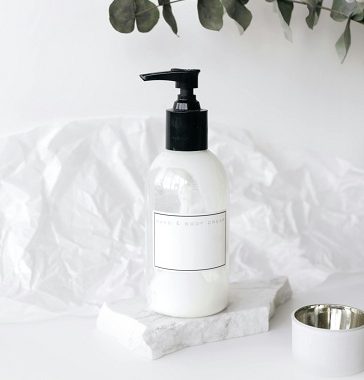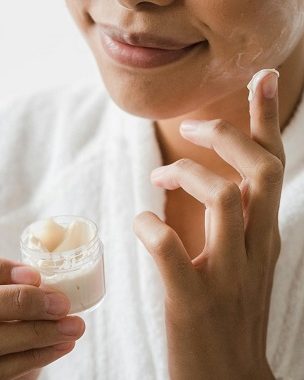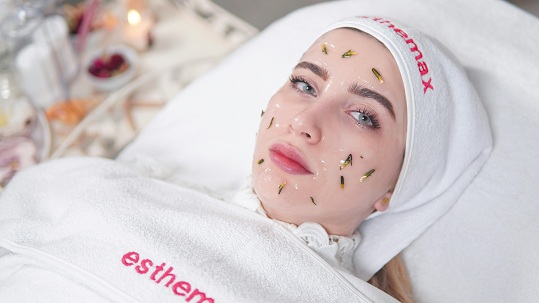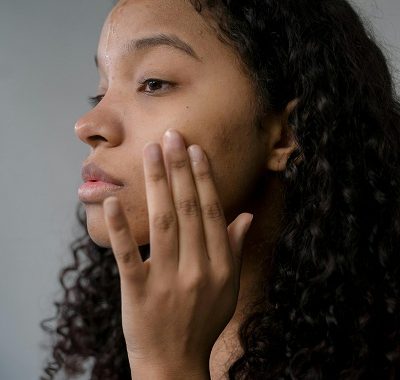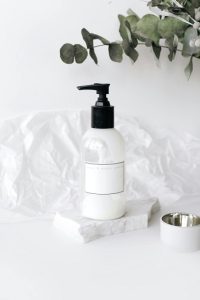
Acne, the bane of many individuals’ existence, is often a frustrating battle that leaves one questioning their skincare choices.
Despite diligent efforts and investment in products promising flawless skin, some find themselves facing a relentless onslaught of breakouts. The culprit? Often lurking within the very skincare products intended to alleviate acne.
In this comprehensive guide, we delve into the intricate relationship between skincare products and acne, uncovering the ones that exacerbate this skin condition.
What Skincare Products Make Acne Worse:
Dermatologists, the frontline warriors in the battle against acne, emphasize the pivotal role of skincare products in exacerbating this condition. They warn against certain ingredients commonly found in skincare formulations that can trigger or worsen acne.
-
Comedogenic Ingredients:
Dermatologists caution against skincare products containing comedogenic ingredients, such as certain oils (e.g., coconut oil, cocoa butter) and thick emollients. While these may seem hydrating initially, they can clog pores and lead to dreaded acne flare-ups.
-
Harsh Cleansers:
Contrary to popular belief, aggressive cleansers can strip the skin of its natural oils, disrupting its delicate balance and triggering increased sebum production—a recipe for acne disaster. Dermatologists advocate for gentle, non-comedogenic cleansers to maintain skin health.
-
Alcohol-Based Products:
Skincare products containing high concentrations of alcohol can be overly drying and irritating to the skin, prompting it to produce more oil to compensate. This vicious cycle can culminate in stubborn breakouts, much to the dismay of those seeking clear skin.
-
Fragranced Formulations:
Fragrances, although enticing to the senses, can wreak havoc on acne-prone skin. Dermatologists advise steering clear of products with added fragrances, as they may contain irritants that aggravate existing acne or trigger new breakouts.
Why Am I Still Breaking Out with a Good Skincare Routine?
The conundrum of persistent breakouts despite a seemingly impeccable skincare routine is a perplexing one. Individuals often find themselves questioning the efficacy of their chosen products and the validity of their skincare regimen. However, several factors may contribute to this frustrating predicament.
-
Incompatibility with Skin Type:
What works wonders for one individual may spell disaster for another. It’s crucial to tailor skincare routines to individual skin types and concerns. An acne-prone individual may inadvertently exacerbate their condition by using products ill-suited to their skin’s needs.
-
Over-Exfoliation:
While exfoliation is essential for sloughing away dead skin cells and preventing clogged pores, overdoing it can have adverse effects. Excessive exfoliation can strip the skin barrier, leading to inflammation and increased acne activity—a classic case of too much of a good thing.
-
Product Build-Up:
Accumulated product residue can sabotage even the most diligent skincare efforts. Failure to thoroughly cleanse the skin can result in pore congestion and subsequent breakouts, regardless of the quality of the skincare products used.
Dermatologist-Recommended Skincare Routine for Acne-Prone Skin:
Navigating the vast landscape of skincare products can be overwhelming, especially for those grappling with acne. Dermatologists offer invaluable insights into crafting an effective skincare routine tailored to acne-prone skin.
-
Gentle Cleanser:
Opt for a non-comedogenic, fragrance-free cleanser to gently cleanse the skin without stripping its natural oils. Look for ingredients like salicylic acid or benzoyl peroxide to target acne-causing bacteria.
-
Lightweight Moisturizer:
Hydration is key, but heavy, pore-clogging moisturizers can exacerbate acne. Choose a lightweight, oil-free moisturizer to hydrate the skin without contributing to breakouts.
-
Targeted Treatments:
Incorporate targeted treatments, such as retinoids or benzoyl peroxide, to address existing acne and prevent future breakouts. These potent ingredients can help unclog pores and regulate sebum production.
-
Sun Protection:
Don’t skimp on sun protection, even if you’re battling acne. Opt for a non-comedogenic sunscreen with broad-spectrum protection to shield the skin from harmful UV rays without aggravating acne.
How to Stop Pimples Coming on Face: Tips for Acne Prevention
Prevention is often the best defense against acne. By adopting simple yet effective strategies, individuals can minimize the occurrence of pesky pimples and maintain clear, healthy skin.
-
Maintain Consistency:
Consistency is key when it comes to skincare. Stick to a regular routine and avoid constantly switching products, as this can disrupt the skin’s equilibrium and trigger breakouts.
-
Practice Good Hygiene:
Keep your hands off your face to prevent transferring dirt, oil, and bacteria to your skin. Regularly clean items that come into contact with your face, such as pillowcases and cell phones, to minimize bacterial buildup.
-
Watch Your Diet:
While diet alone may not cause acne, certain foods can exacerbate existing breakouts in susceptible individuals. Limit consumption of high-glycemic foods and dairy products, which have been linked to acne flare-ups.
Why Do I Wake Up with a New Pimple Every Day? Understanding Skin Purging
The phenomenon of waking up to a new pimple every day can be disheartening, especially for those diligently following a skincare routine. However, it’s essential to distinguish between skin purging and a skincare product causing breakouts.
-
Skin Purging:
Skin purging is a temporary reaction that often occurs when introducing new skincare products with active ingredients like retinoids or chemical exfoliants. These ingredients work to increase cell turnover, pushing impurities to the surface and causing existing clogs to purge.
This process can manifest as a surge in breakouts, seemingly contradicting the goal of clearer skin. However, it’s a sign that the product is effectively stimulating skin renewal. It’s crucial to differentiate purging from a negative reaction to a product.
Purging typically occurs in areas where you commonly experience breakouts and resolves within a few weeks. Conversely, if breakouts persist or worsen beyond this period, it may indicate an adverse reaction to the product, necessitating discontinuation and consultation with a dermatologist.
Understanding this distinction empowers individuals to persevere through the purging phase, ultimately achieving smoother, clearer skin in the long run.
-
Product-Induced Breakouts:
Product-induced breakouts occur when a skincare product triggers ongoing or worsening acne beyond the initial purging phase. This suggests that the product is incompatible with the individual’s skin, leading to persistent irritation or clogged pores.
Discontinuing the offending product is crucial to prevent further exacerbation of acne. Consulting a dermatologist is recommended to identify alternative skincare options tailored to the individual’s specific needs and concerns.
This proactive approach ensures that the skincare regimen supports skin health and addresses acne without causing additional harm.
Best Pimples Treatment For Face
Conclusion:
Navigating the labyrinth of skincare products can be daunting, especially for those grappling with acne. Understanding the ingredients and formulations that exacerbate acne is paramount in curating an effective skincare routine tailored to individual needs.
By heeding the advice of dermatologists and adopting preventive measures, individuals can embark on a journey towards clearer, healthier skin, free from the shackles of persistent breakouts.
Further Reading:
8 Best Ingredients for Acne-Prone Skin
How To Tell If Your Skin is Purging or Breaking Out
FAQs:
Is my skincare routine making my acne worse?
If your acne persists or worsens despite following a skincare routine, it’s possible that some products may be exacerbating the issue. Look for signs such as increased breakouts beyond the initial adjustment period or persistent irritation. Evaluate your routine for comedogenic ingredients, harsh cleansers, or fragrances that may be aggravating your skin. Consider consulting a dermatologist for personalized recommendations to address your acne concerns effectively.
�What ingredients make acne worse?
Ingredients such as comedogenic oils (like coconut oil), heavy emollients, alcohol, and fragrances can exacerbate acne by clogging pores, causing irritation, or triggering excess oil production. Additionally, high-glycemic foods and dairy products in diet have been linked to worsening acne in some individuals. It’s essential to read product labels carefully and opt for non-comedogenic, fragrance-free formulations to minimize the risk of aggravating acne-prone skin.
�What makes acne look worse?
Acne can appear worse due to various factors such as inflammation, excess oil production, bacterial growth, and clogged pores. Additionally, picking or squeezing pimples can aggravate inflammation and lead to scarring. Certain skincare products containing comedogenic or irritating ingredients can also exacerbate acne. Hormonal fluctuations and dietary choices may further contribute to the appearance of acne. Consistency in skincare routines and avoidance of triggers are key to minimizing the severity of acne.
�What makes breakouts worse?
Breakouts can worsen due to various factors such as using comedogenic skincare products, harsh cleansers stripping the skin’s natural oils, excessive exfoliation leading to inflammation, and product build-up causing pore congestion. Additionally, incompatible skincare routines, poor hygiene practices, and certain dietary choices like high-glycemic foods can exacerbate breakouts. Identifying and avoiding these triggers, along with maintaining a consistent and suitable skincare routine, is crucial in managing and minimizing breakouts effectively.
